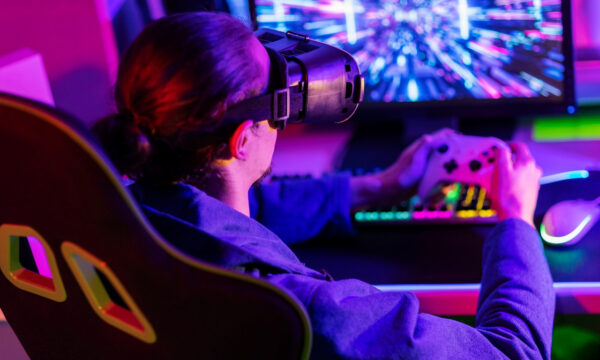From stage to screen to screen-tap: The digital shift in UK entertainment

Over the last century, the way that we consume entertainment has fundamentally altered, almost to the point that it is no longer recognisable. Today, we have access to devices and technologies that, just a few decades ago, would have seemed almost magical. This has had profound consequences, not just for the way we consume our entertainment, but also for the way that entertainment is crafted.
The evolution of UK entertainment consumption
For hundreds of years, the way that most people got their entertainment was from stage performances. Over the centuries since Shakespeare arrived, theatres became showier and more sophisticated – but the basic principles remained the same.
That changed in the early 20th century, with the proliferation of recorded video. All of a sudden, people could gather in a special building in order to watch actors on a screen, rather than a stage. The release of a new film became a cultural experience that the entire nation could go through at the same time.
The emergence of digital streaming has created an enormous breadth of choice for consumers. At the same time, it’s fragmented that shared experience. Media consumption, for the most part, is something that we do alone.
The role of interactivity in the digital age
Of course, a major consequence of the digital age has been the advent of computer games. These have come a long way from early offerings like Pong. Nowadays, online gaming is a major industry, with major live streams and tournaments commanding millions of viewers.
Mobile gaming is a major pillar of the modern games industry, with gambling apps providing countless gamers with a means of killing time, and chasing prizes. It’s possible to play casino online at Mr Q, and choose from a vast range of compelling game variants.
Balancing tradition with digital innovation
Of course, just because new formats have emerged doesn’t mean that older ones have to be abandoned altogether. Theatres, concert halls, and cinemas are still in business. But the shape of the offering has changed. Often, a synthesis of modern digital technology and traditional human performance can create an experience that’s more compelling than either could offer in isolation. For example, you might watch a performance by a local singer-songwriter on TikTok, request a particular song, and even be encouraged to visit the bar at which the performance is being held.
What does the future hold?
It’s difficult to see what changes might help to shape the entertainment industry of the future. But what’s clear is that artificial intelligence will play a significant role. We might see a future in which the media we consume is tailored specifically to our interests, and generated algorithmically to keep us hooked. In fact, key figures in the industry are already speaking up about the dangers that such a future might present.
The editorial unit

























Facebook
Twitter
Instagram
YouTube
RSS